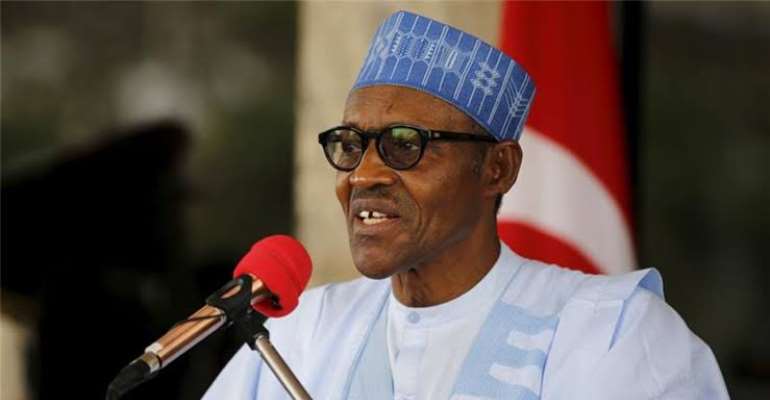BudgIT to President Buhari: Remove Fuel Subsidy After 13 Years of N10trillion Wasteful Corruption

To the detriment of socio-economic developments, Nigeria has spent nothing less than
N10 trillion on petrol import subsidy between 2006 and 2018. Let it be known: Nigeria is
dancing on the edge of a razor blade by continuing its subsidy regime.
According to our recent research “Nigeria’s Petrol Subsidy Regime: Dilemma of the
World’s Most Populous Black Nation” Nigeria currently imports an average of 91% of its
daily petrol needs, thus disproportionately exposing local petrol prices to price shocks
from international factors of production and exchange rate volatility. There is a near
perfectly inverse relationship between the fall in the value of Naira and the rise in the
cost of imported petrol. That is, when next the Naira is devalued, Nigeria’s subsidy bill
can be expected to jump.
Meanwhile, the continuation of petrol price regulation perpetuates safety nests for
exceptional forms of corruption within the country's subsidy regime. Import subsidy
creates petrol price arbitrage - the differential between the regulated price in Nigeria
and the high petrol prices in neighbouring countries - which is big enough to incentivise
smuggling of subsidized products to neighbouring border towns. According to NNPC,
there are 2,201 petrol stations in Nigeria’s porous border towns and coastal frontiers,
with a combined fuel tank capacity of 144.9 million litres. Analysts argue, ringing
corruption alert, that the population around that area is far from justifying the size of
the petrol market.
BudgIT notes with dismay that “fuel subsidy” deprives Nigeria of funds needed for
critical socio-economic development as it discourages investors, who generally prefer a
deregulated industry, from investing in the downstream sector especially in the area of
refinery construction and operation. For instance, the 10 trillion consumed by the
subsidy regime is sufficient to construct 27,000MW of electricity or build about 2,400
units of 1000-bed standard hospitals across 774 local government areas of Nigeria,
found our research.
We equally note that the Nigerian masses worship low oil prices. More so, the political
class fears that increases in petrol price (and in the cost of living by extension),
occasioned by a deregulated price regime, could become a flashpoint for mass uprisings
and political instability. Nonetheless, we can never shy away from the opportunity cost
of the corrupt subsidy regime.
To the detriment of socio-economic developments, Nigeria has spent nothing less than
N10 trillion on petrol import subsidy between 2006 and 2018. Let it be known: Nigeria is
dancing on the edge of a razor blade by continuing its subsidy regime.
According to our recent research “Nigeria’s Petrol Subsidy Regime: Dilemma of the
World’s Most Populous Black Nation” Nigeria currently imports an average of 91% of its
daily petrol needs, thus disproportionately exposing local petrol prices to price shocks
from international factors of production and exchange rate volatility. There is a near
perfectly inverse relationship between the fall in the value of Naira and the rise in the
cost of imported petrol. That is, when next the Naira is devalued, Nigeria’s subsidy bill
can be expected to jump.
Meanwhile, the continuation of petrol price regulation perpetuates safety nests for
exceptional forms of corruption within the country's subsidy regime. Import subsidy
creates petrol price arbitrage - the differential between the regulated price in Nigeria
and the high petrol prices in neighbouring countries - which is big enough to incentivise
smuggling of subsidized products to neighbouring border towns. According to NNPC,
there are 2,201 petrol stations in Nigeria’s porous border towns and coastal frontiers,
with a combined fuel tank capacity of 144.9 million litres. Analysts argue, ringing
corruption alert, that the population around that area is far from justifying the size of
the petrol market.
BudgIT notes with dismay that “fuel subsidy” deprives Nigeria of funds needed for
critical socio-economic development as it discourages investors, who generally prefer a
deregulated industry, from investing in the downstream sector especially in the area of
refinery construction and operation. For instance, the 10 trillion consumed by the
subsidy regime is sufficient to construct 27,000MW of electricity or build about 2,400
units of 1000-bed standard hospitals across 774 local government areas of Nigeria,
found our research.
We equally note that the Nigerian masses worship low oil prices. More so, the political
class fears that increases in petrol price (and in the cost of living by extension),
occasioned by a deregulated price regime, could become a flashpoint for mass uprisings
and political instability. Nonetheless, we can never shy away from the opportunity cost
of the corrupt subsidy regime.
